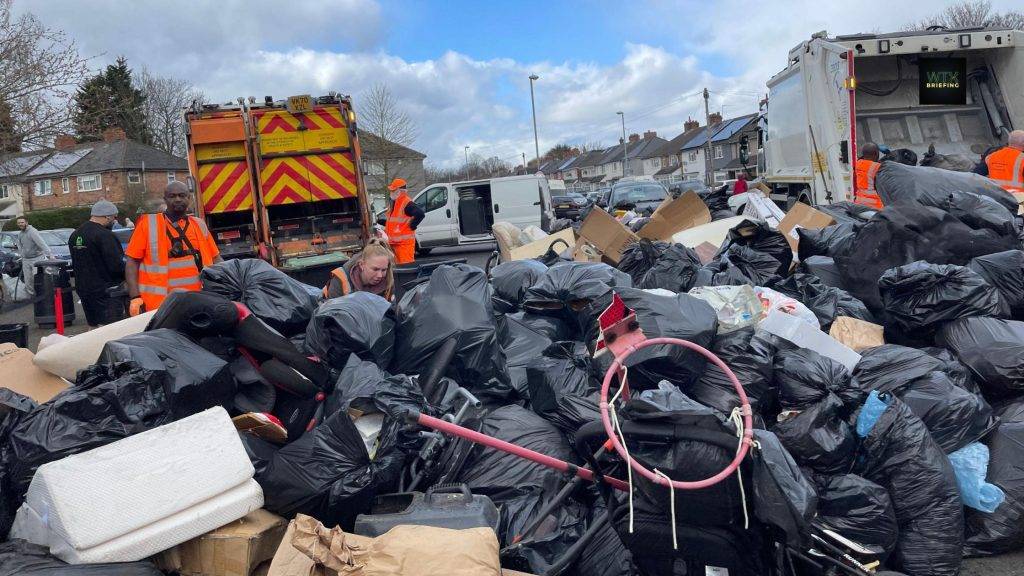The UK government has called in the army to help assist the Birmingham City Council in dealing with the sanitation crisis due to the ongoing Birmingham bin strikes. The military support will consist of three office-based personnel providing logistical planning with soldiers not being deployed for rubbish collection.
The months-long strike by the city’s bin workers originated from disputes over pay and job security.
Army called in to help tackle Birmingham bin strike crisis

Rayner calls in Army to tackle Birmingham bin crisis: Military personnel take up office-based role to help during strike
Explainer: The headline employs sensationalism by stating, “Rayner calls in Army,” which implies a dramatic military intervention, potentially evoking alarm. However, the reality—”office-based role”—is far less extreme. This contrast creates a misleading sense of urgency or crisis, possibly reflecting bias against Rayner by exaggerating the severity of her actions.
- The Daily Telegraph reports the move as “desperate.” The paper says the move risks inflaming tensions between Labour and unions after one of the city’s Labour MPs accused United of holding 1.2 million people “to ransom.”
Army called in to tackle Birmingham bin strike
Explainer: The headline is somewhat sensational, suggesting a forceful military response to a civil dispute. The subheadline provides necessary context—highlighting the workers’ strike and the specific grievance—yet the main headline omits this nuance, potentially framing the strikers negatively and evoking a sense of crisis disproportionate to the actual situation.
- The Times has a similarly dismissive take on the army being called in, saying it will “tackle the bin strike … from the office.”
Birmingham bin strike: Government issues warning of public health crisis
Explainer: This headline leans towards sensationalism by invoking a “public health crisis,” which may heighten fear or urgency. While it reflects an official government stance, the phrasing lacks detail or balance, omitting the scale or causes of the issue, and potentially framing the strike as dangerously irresponsible without acknowledging the workers’ concerns.
- WION says the ongoing bin strike in Birmingham has prompted a government warning about a potential public health crisis. Accumulated waste across the city is raising concerns over sanitation and disease risks.
Army called to rat-ridden Birmingham bin strike to tackle ‘public health risk‘
Explainer: This headline is highly sensational, using emotive language like “rat-ridden” and quoting “public health risk” to provoke alarm. It emphasises decay and danger, painting a dire image of Birmingham, while the mention of the Army again suggests an extreme response. This framing risks bias by focusing on dramatic consequences rather than the root causes or workers’ grievances.
- Daily Star says the all-out strike, which began on March 11 as part of a dispute over pay, has seen thousands of tonnes of rubbish go uncollected and warnings of a public health emergency.
Army experts to help Birmingham bins clean-up as city holds breath over strike ballot
Explainer: This headline uses mildly dramatic language—”city holds breath”—to create tension around the strike outcome, which may exaggerate public anxiety. Referring to “Army experts” adds a sense of gravity, potentially overstating the nature of their involvement. While not overtly biased, it leans towards sensationalism in tone rather than offering a balanced account.
- BirminghamLive reports that only a small number of the forces’ logistics experts will be providing temporary aid to ensure the mountain of trash is tackled swiftly, according to the Government.


